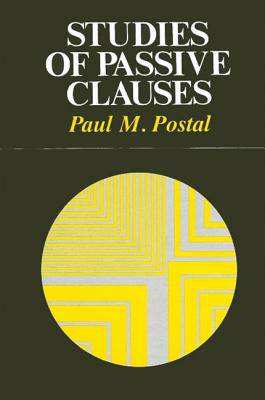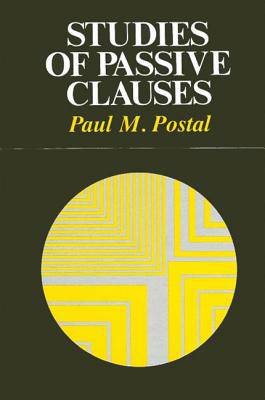
- Retrait gratuit dans votre magasin Club
- 7.000.000 titres dans notre catalogue
- Payer en toute sécurité
- Toujours un magasin près de chez vous
- Retrait gratuit dans votre magasin Club
- 7.000.0000 titres dans notre catalogue
- Payer en toute sécurité
- Toujours un magasin près de chez vous
Description
In this work, Paul M. Postal supports the universalist theory of language by examining passive clauses. Contrary to a skeptical tradition, Postal argues that passive clauses are cross-linguistically identifiable and characterizable. This study proposes refinements of the analysis of the natural language grammatical category Passive Clause. These refinements include an account of the notion 'dummy nominal, ' central to the analysis of impersonal passive clauses; additions permitting a proper typology of the major known subtypes of Passive Clause; a generalization permitting application to clauses whose subjects are not earlier level direct objects; and, construction of precise rule concepts to represent restrictions on passive clauses.
The passive domain supports the universalist approach in three distinguishable ways: (1) by permitting formulation of otherwise apparently unstatable lawful characteristics of all passive structures; (2) by facilitating statement of language-specific passive constraints holding in diverse languages; and, (3) by allowing uniform statement in grammars of recurrent constraints on passives. Each mode of support is applied to actual cases based on material from more than a dozen languages from English and French to Quiche (Mayan) and Chi-Mwi: ni (Bantu).
Spécifications
Parties prenantes
- Auteur(s) :
- Editeur:
Contenu
- Nombre de pages :
- 286
- Langue:
- Anglais
- Collection :
Caractéristiques
- EAN:
- 9780887060830
- Date de parution :
- 01-11-85
- Format:
- Livre relié
- Format numérique:
- Genaaid
- Dimensions :
- 152 mm x 229 mm
- Poids :
- 535 g

Les avis
Nous publions uniquement les avis qui respectent les conditions requises. Consultez nos conditions pour les avis.






